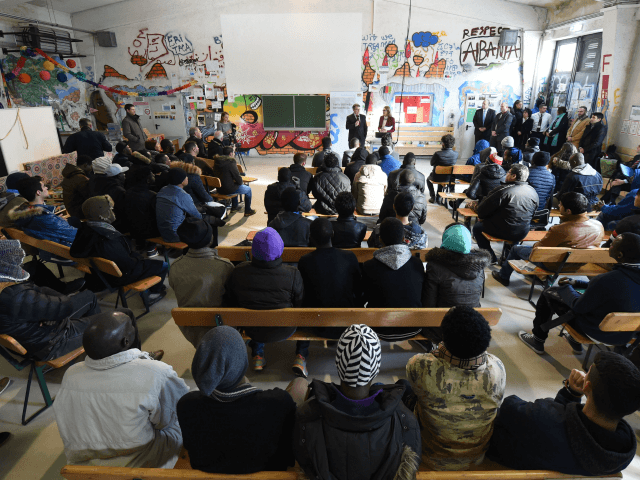Rising fundamentalism amongst Muslim youths in Germany is sparking alarm in the nation’s schools, with more and more teachers seeking help in dealing with radicalised pupils.
Since October last year, a hotline set up by the Federal Ministry for Migration and Refugees (BAMF) has increasingly been inundated with calls from teachers and school mental health workers concerned about Islamic extremism.
“Most of the children have grown up in a Salafist environment — that is to say, their parents are radicalised,” said Florian Endres, from Nuremberg Advisory Centre on Radicalisation.
Domestic intelligence chief Hans-Georg Maassen warned in December that support for radical Islam was at “an all-time high”, with the number of Salafists identified by authorities as living in Germany having grown to 10,800 from just 3,700 in 2011.
Police confirm 15-year-old girl who stabbed police officer was ISIS youth https://t.co/tLolBfZPZA pic.twitter.com/UTdFoZff3F
— Breitbart London (@BreitbartLondon) April 16, 2016
The Centre for Coordination of the Network to Prevent Extremism (KPEBW), which was set up by the Baden-Württemberg state government in 2015, has been training school psychologists in how to recognise extremism amongst Muslim pupils.
“For many teachers, there is a great deal of uncertainty in the context [of Islamic extremism],” said Asiye Sari-Turan who briefed a group of 55 mental health professionals working at schools across Germany on extremism over the course of a three-day KPEBW training event held in December.
“[Teachers and school psychologists] often lack awareness with regards to how to distinguish between regular behaviour, that has maybe been brought on by puberty, and extremism,” she told the Schwäbisches Tagblatt on Monday.
As well as focusing on the psychology of radicalisation and the threat Salafist ideology poses to Germany, the seminars also taught school staff how to recognise jihadist symbols and code that young people post on the internet such as the Islamic State flag, or a picture of lions.
“During the training, participants said: Now that you’ve explained the codes and symbols, I remember seeing that,” Sari-Turan added.
Germany Opened 1,000 Investigations into Radical Islamic Extremists in 2017 https://t.co/ZlD5pcIa8j
— Breitbart London (@BreitbartLondon) January 29, 2018
A KPEBW resource entitled ‘Promoting Integration, Recognising Radicalisation — Guidelines for Teachers in Education and Vocational Training’, says schools should be alert if pupils show “emphatic rejection of the views of teachers and classmates as haram (forbidden)”.
Other warning signs highlighted in the booklet include Muslim youths turning their back on music and other leisure activities, and radically changing their behaviour towards the opposite sex.
Intelligence services recently warned that a growing number of female Islamic extremists have begun to come to prominence in Germany’s Salafist scene as their husbands are sent to prison.
As Breitbart London previously reported, the Agency for the Protection of the Constitution in North Rhine-Westphalia said they have identified more than 40 female extremists authorities believe are radicalising the next generation of jihadis.

COMMENTS
Please let us know if you're having issues with commenting.